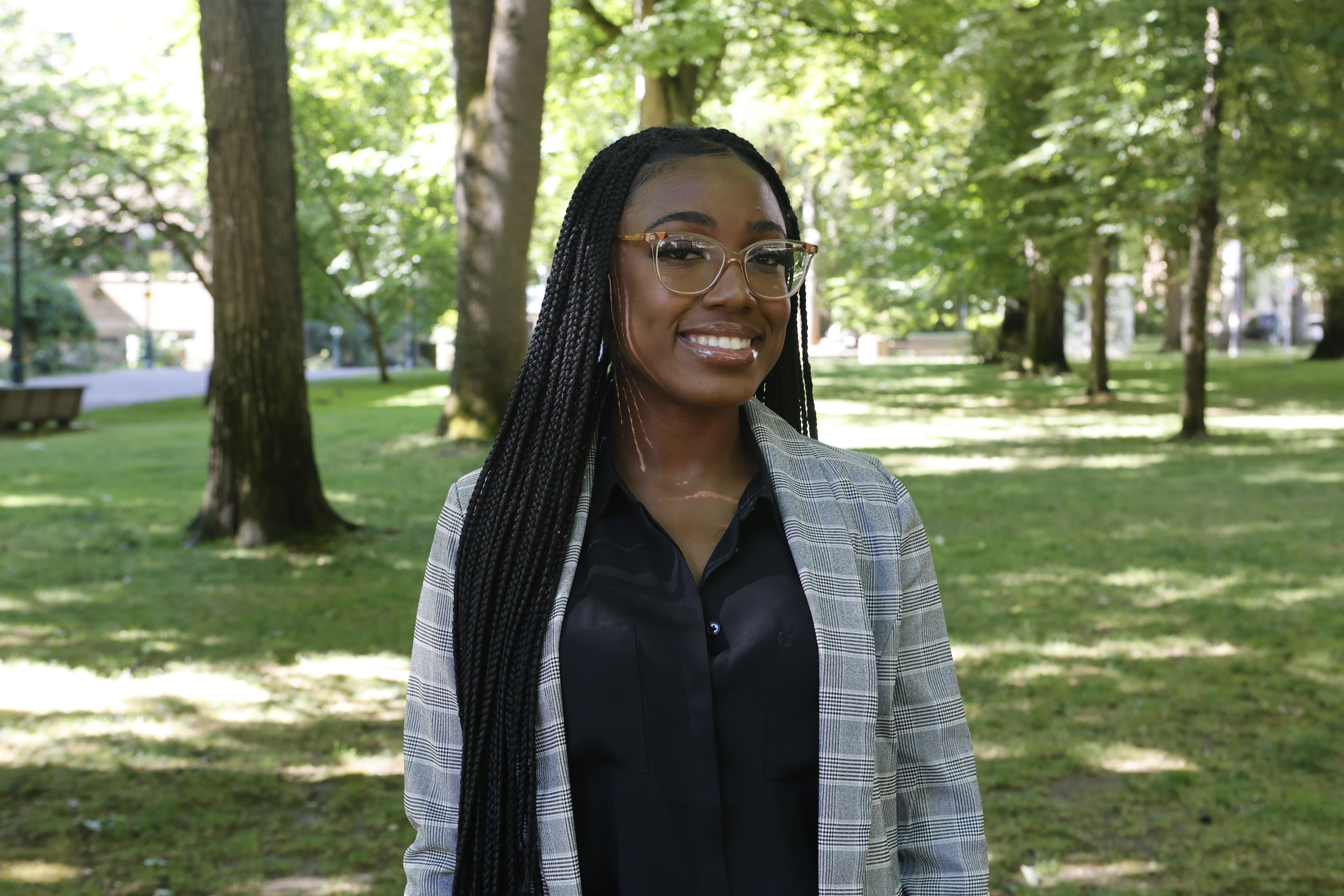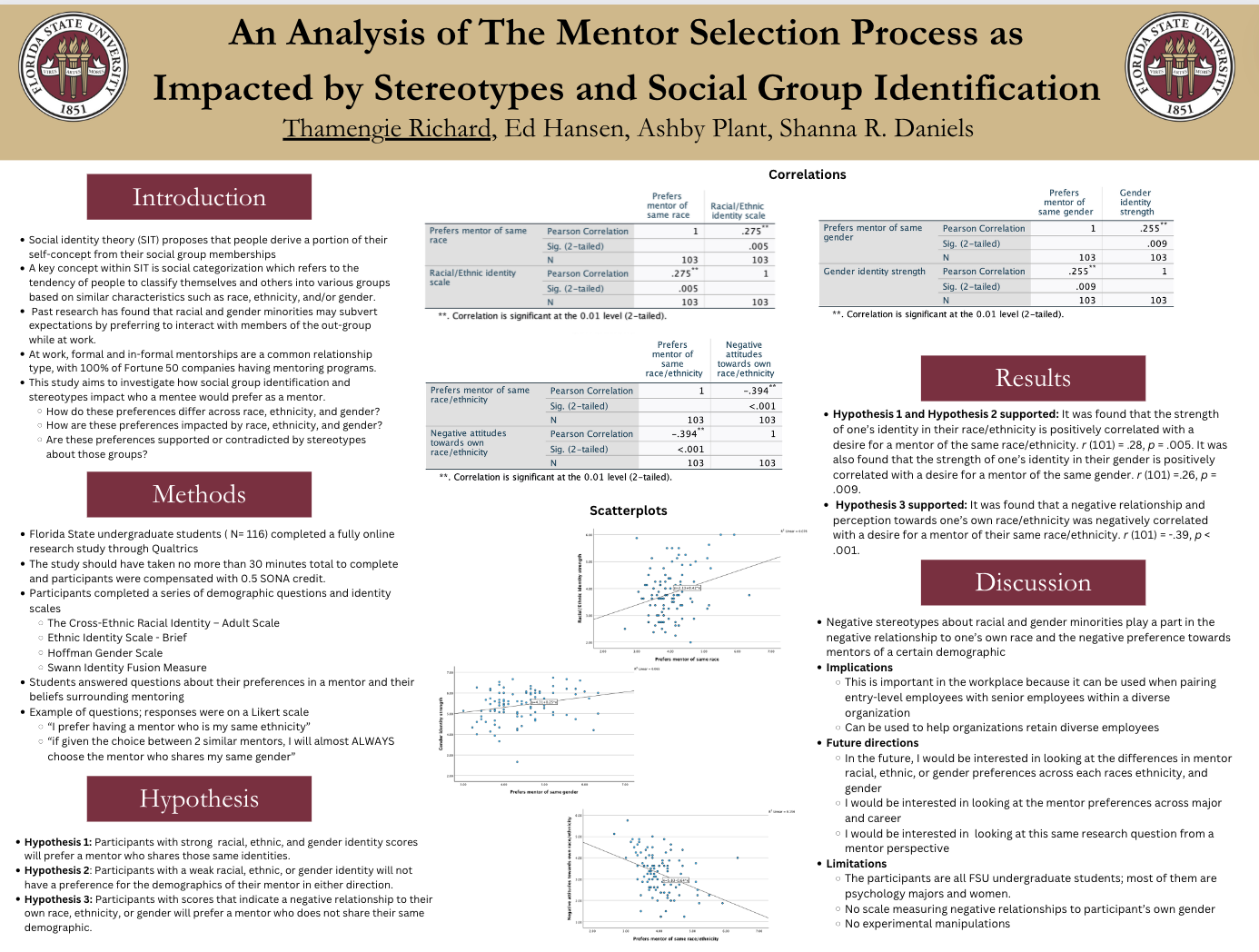Research Symposium
24th annual Undergraduate Research Symposium, April 3, 2024
Thamengie Richard Poster Session 2: 10:45 am - 11:45 am/116

BIO
Born in Haiti, raised in South Florida, Thamengie Richard is a 4th year undergraduate student majoring in psychology with a minor in innovation and data analytics. Broadly, her research centers on the intersection of work and relationships. Thamengie's research interests include diversity, equity, and inclusion, relationships, social group dynamics, and work-family. Most adults spend the majority of their waking hours at work and Thamengie's passion is to make that a more equitable and enjoyable experience for all people. After graduating this spring, Thamengie will begin an Industrial - Organizational Psychology Ph.D. program at the University of Georgia. Outside of academia, Thamengie enjoys dancing, pottery, learning the piano, and watching romantic comedies.
An Analysis of the Mentor Selection Process as Impacted by Stereotypes and Social Group Identification
Authors: Thamengie Richard, Ed HansenStudent Major: Psychology
Mentor: Ed Hansen
Mentor's Department: Psychology Mentor's College: Arts & Sciences Co-Presenters:
Abstract
Social Identity Theory predicts that people form group memberships based on characteristics such as race, ethnicity, or gender. This theory is particularly important in environments where people spend alot of time and where it is necessary for them to interact, such as in the workplace. However, past research has found that racial and gender minorities may subvert expectations by preferring to interact with members of the out-group while at work. Investigating this phenomenon is especially important with mentor-mentee relationships because they are prevalent in workplace settings and play a role in organizational success.
This current work aims to examine how social group identity strength, meaning how strongly one identifies with certain characteristics, impacts mentor selection in a professional environment. 150 undergraduate participants completed a study online where they answered questions about their demographics, how strongly they feel that their race/ethnicity/gender is tied to their identity, and what characteristics they find important when choosing a mentor. We hypothesize that participants with weak social group identities will be less likely to think that identity is important when choosing a mentor. Similarly, we hypothesize that participants with strong social group identities will be more likely to think that identity is important when choosing a mentor. After data collection, all our hypotheses were supported as we found significant correlations between social group identity and mentor selection. The results from this study will contribute to the literature on diversity in the workplace and can be used by organizations to combat the glass and concrete ceiling.
Keywords: Work, relationships, mentor, social group identity, diversity

